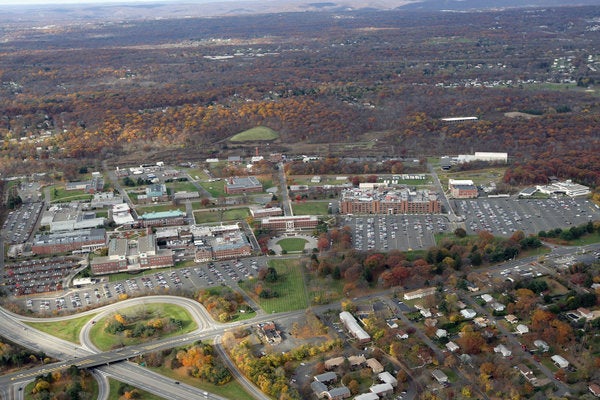|
RCBJ-Audible (Listen For Free)
|
Pfizer Cuts Staff Across Tri-State Area While Embarking On Acquisitions and Expansion
Business News
Pharmaceutical giant Pfizer filed notice with New York State announcing the nearly 30 percent reduction of its workforce at its Pearl River campus in Orangetown.
The cut of 285 of its 1,012 workers was necessitated by “economic” conditions, according to the filing. Layoffs will begin February 12th.
The Pearl River location is Pfizer’s primary location for its global vaccine research and development work.
Pfizer’s origins in Pearl River date back to 1907, when Dr. Ernst Lederle established the Pearl River site to produce antiserum to treat children with diphtheria in New York City. Since then, the facility has developed vaccines to prevent diseases like smallpox and polio, and most recently COVID-19.
In 2015, Pfizer, Inc sold the 207-acre campus for $40 million to Industrial Realty Group, LLC, a California-based real estate development and investment firm. The former IRG campus later rebranded to the Hudson Valley iCampus. Nearly 60 percent of the 2-million-square-foot mixed use, multi-tenanted campus remains vacant.
Amid the layoffs, Pfizer has also announced plans to invest $470 million to renovate its existing facilities on its original Pearl River campus site and construct a new building. The expansion is anticipated by 2026 and will add 260,000 square feet of operations, including 55,000 square feet of laboratory space. In August, a division of pharmaceutical firm Pfizer Inc. signed a renewal for its leased premises and expansion totaling more than 151,000 square feet of space at the Hudson Valley iCampus. Pfizer is calling the expansion plan “Project Vitality.”
According to a representative at the Hudson Valley iCampus, the space will house manufacturing, laboratory, warehouse and office functions in multiple buildings throughout the 207 acre, 2 million-square-foot campus. The combined rents have a value in excess of $16 million.
In August, Pfizer filed a lawsuit against the Town of Orangetown challenging the assessed value of its existing Pearl River holdings. Pfizer argued that its property, currently assessed at $64.6 million, should be assessed down to $3.56 million, a reduction in assessed value of 94.5 percent.
Rockland County was once a thriving hub for pharmaceutical companies. The former Novartis campus in Suffern is slated to become a warehouse distribution center. The Avon facility, also in Suffern, has been sold to Regeneron Pharmaceuticals Inc., which will be used for research, development, and cold storage.
Last month, Pfizer announced plans to shutter its campus in Peapack-Gladstone, New Jersey, impacting nearly 800 jobs, according to a filing with the New Jersey Labor Department. Those layoffs will also begin in February.
Pfizer also announced plans to sell the 595,000 square-foot campus on 71 acres in Somerset County, NJ. Pfizer was the borough’s largest taxpayer.
And more job cuts are expected at Pfizer’s Groton, Connecticut facility, though Pfizer has yet to announce how many of the 2,600 people employed at that site will be affected by the layoffs.
These and other layoffs in Michigan, Illinois, Colorado, and North Carolina, are part of what the company is calling an “enterprise-wide cost realignment program.”
The cost-cutting campaign is a result of plunging demand for the company’s COVID-19 vaccine Comirnaty and antiviral Paxlovid as well as COVID-related inventory write-offs and $4.2 billion in lost revenue from the planned return of millions of Paxlovid doses from the U.S. government. Pfizer played a major role in developing the COVID vaccine. The Pearl River campus was a vaccine research and development hub; it did not manufacture vaccine there. In 2020, Pfizer told RCBJ it expected to manufacture up to 100 million doses by the end of 2020 and approximately 1.3 billion doses by the end of 2021, subject to the final dose selection from its clinical trial.
In other news, Pfizer last year completed its acquisition of biotech giant Seagen for $43 billion. Pfizer’s stock, traded on the NYSE, is trading at about 50% off its 52-week high.












